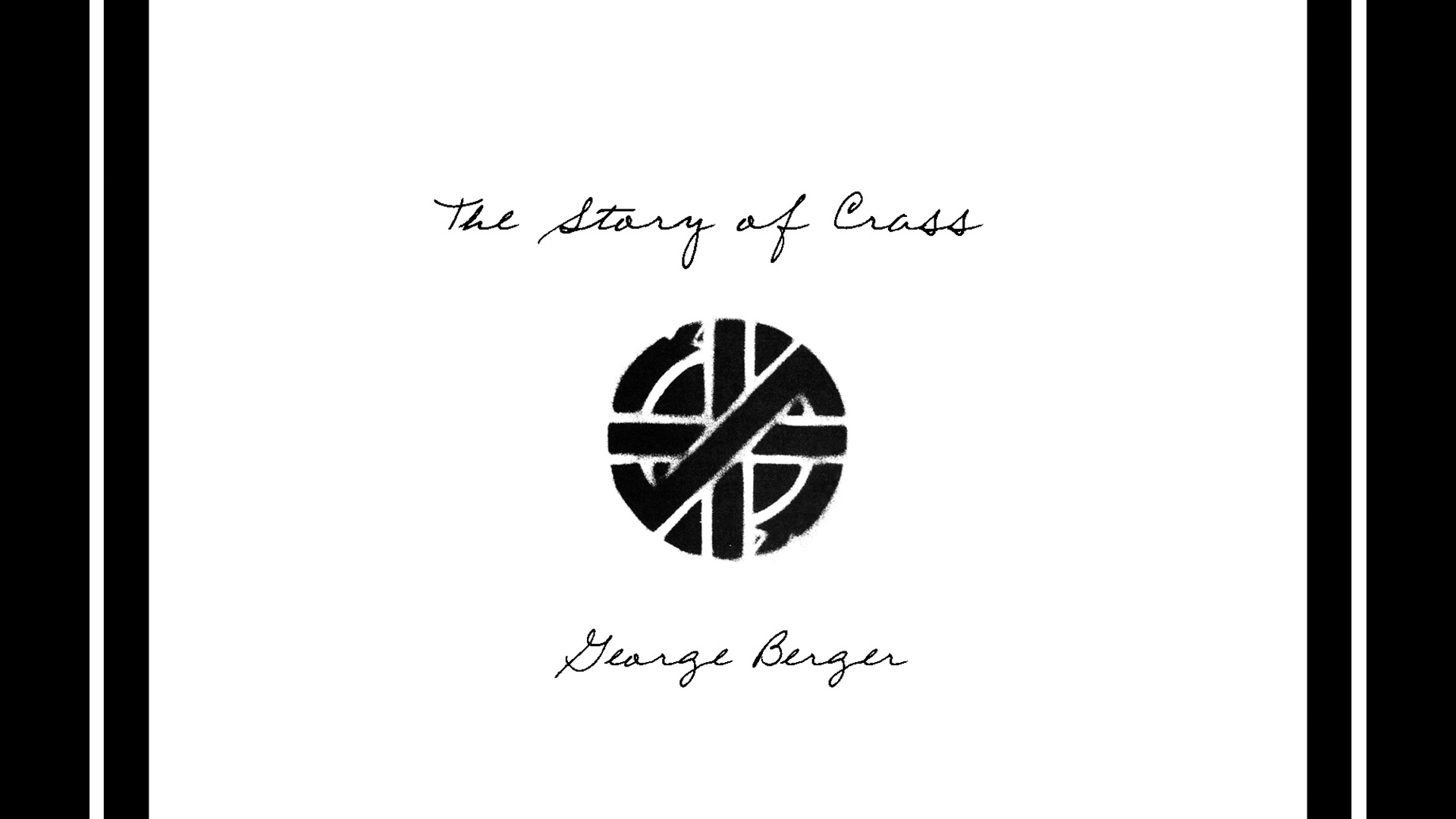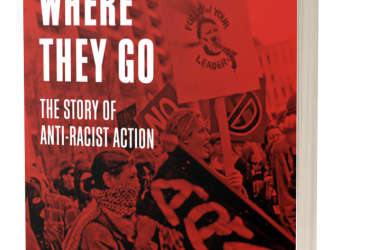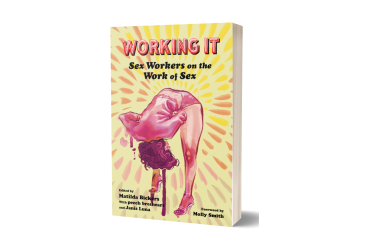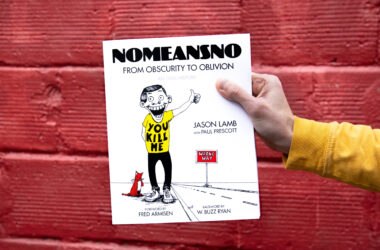3:am Magazine
by Andrew Gallix
September 2007
3:AM: How did you get into punk?
GB: Seeing the bizarrely-dressed head-turners strolling around Bromley and surrounding areas really turned my head. Clothes and hair and a way of walking that just said “fuck off” to everyone, and straight society in particular. I don’t remember the individuals individually, just the feeling of seeing unrepentant weirdos expressing themselves via their appearance. I’d imagine this was before the word ‘punk’ came into popular use, but it doesn’t really matter either way. Seeing similar—or perhaps the same—people then interviewed on the London Weekend Show by Janet Street Porter, and then on “Young Nation” on Nationwide turned my head yet further: they were sullen and obnoxious and that confused my hormones. I can’t say I liked the look of them, but it opened a door in my mind that had previously been locked and marked “no entry.” Finally, the famed Bill Grundy interview drew a line in the sand as I watched it with my outraged parents, trying to conceal my glee. This was clearly a step beyond their affectionate mock-outrage at glam rock.
“No more apologies,” as Morrissey later described it so beautifully. My zits cleared up almost immediately, perhaps because I wasn’t scared of them anymore. Freedom of feeling, the feeling’s appealing. In other words, punk pushed the right buttons by opening the right (mental) doors at the right time. The music was often great, but was never the point.

3:AM: Your band, Flowers in the Dustbin, were part of the anarcho-punk scene, so you wrote this Crass book as an insider…
GB: Is there any self-respecting anarchist who would admit to being such? I wouldn’t know…
Being part of the London anarcho-punk-goth-crazy-coloured-fools-with-no-rules scene certainly informed the perspective that the book is written with of course, because it meant my early experience with anarchist thought and practice wasn’t limited to Crass. A sense of perspective, as Tap philosophised. But I’m not so sure FITD as a band were as much a part of all that in the way it’s now remembered. There’s a book about anarcho-punk coming out called The Hippies Now Wear Black — we were innocent on both those charges!

3:AM: To what extent did the members of Crass help you with your research and how have they reacted to the book?
GB: The members of Crass—Andy Palmer excepted—were as helpful as anyone could reasonably be expected to be, and in the cases of most, well beyond that.
The Crass members were also strikingly, unusually, generous and kind in a way that prods your conscience into examining its own parameters. Whatever happened to the members of Crass in their respective life-journeys at the time, it seems to have left an indelible urge to be kind and generous. Perhaps that was the energy that originally attracted so many towards them. In fact, I’m certain it was.

3:AM: In another interview you said: “I always felt a bit sorry for the people who bought into Crass at the expense of everything else”. However, when you read the book, it is obvious that the Ants/Crass dichotomy still seems to rankle after all these years. Crass offered a whole lifestyle that was difficult to reconcile with non-anarcho punk bands like the Ants or UK Subs. It was a bit like joining a fundamentalist sect, wasn’t it? Do you think you might have been attracted to this aspect of the band because of your Catholic upbringing?
GB: Meaning Crass were a part of the whole and people who bought into the sideshow “anarcho-punk” often missed out on the other colours of the rainbow—Killing Joke, Bauhaus, Swell Maps, Au Pairs, Slits, etc etc… I don’t think it was a dichotomy at all in the early days, but sadly neither side could resist the bitching that subsequently became one of anarcho-punk’s main characteristics.
I should point out that I wasn’t attracted to Crass so much as fascinated by them, i.e. I was massively drawn to the idea of somewhere like Dial House working for decades as an open house, but could never quite reconcile the difference between the harsh Crass rhetoric and the gentle people in Crass. Frankly, you’d expect Crass to be aggressive and confrontational as people, but they were—and are—lovely. Delibrate dada contradictions? Maybe.
The Crass image encouraged the fundamentalist thing, which I would suggest was due to some kind of archetype hangover from the hippie times (where sects flourished of course). The Ants, Subs etc were far more healthy in this respect, I’d say, as they weren’t playing the parent. Saying ‘be yourself’ is great (Ants / Subs / punk), but the minute you start defining what that self should be, albeit unintentionally, you’re risking straying into a difficult place. The Crass output became self-conscious and “preachy” once they got an audience—I felt sorry for the people who were perhaps young and encountering Crass/punk for the first time at this juncture and so bought into an opinion as though it was a reality. The map is not the territory.
I was repelled by the perceived fundamentalist aspect of Crass, not attracted to it. Whether or not this was connected to being brought up a Catholic, I’ve really no idea.

3:AM: Crass’s obsession with political freedom was so extreme that it enslaved some members. Steve Ignorant actually describes leaving the band as a liberation from the band’s politically-correct shackles: “I couldn’t look at the barmaid’s arse without being branded sexist. I couldn’t have milk in my tea without being called a bastard cos I wasn’t a vegan”. He also told you that if he’d been a 16-year-old punk at the time Crass’s rhetoric would have put him off and he would probably have been an Exploited fan. Even Penny Rimbaud, the band’s éminence grise, admits that they were “too serious”. It’s a double-edged thing, though, isn’t it? Crass meant so much because they were for real, but that purity also implied a po-faced, puritan zealotry…
GB: I don’t think Crass came across like that initially (before Penis Envy, if I’m forced to draw a line in the sand). I’m also not sure Steve is right—I don’t think that whatever took him to Dial House would have otherwise taken him to the Exploited; just a glib quote possibly out of context here. (In book interviews, Steve just spoke his mind whereas some other members of Crass pondered for literally minutes before replying to questions—which is quite unnerving but simultaneously inspiring).

3:AM: Your book often reads like a demystification of Crass’s political correctness. Whereas at the time, they appeared so self-assured—with their black uniforms, military backdrops and corporate logo—here, they come across as far more human and vulnerable. Steve and Pete admit that they knew little about anarchist history; Eve Libertine explains that she had qualms about “Reality Asylum” because of her Christian upbringing; Steve wrote “So What” as a kind of childish dare “to see if there’d be a bolt of lightning” when he sang the blasphemous lyrics… Did all this change the way you perceived the members of the band and the Crass phenomenon or were you conscious of this vulnerability at the time?
GB: I didn’t know the band well enough as people at the time to be sure of the vulnerability. I’d wager few, if any did.
With the book, I wanted to try and find the people behind the image / wall of anynomity. Demystification hits the nail on the head. Whilst Crass were always approachable back then as “Crass,” the individuals behind the job were often impossible to discover. Even to themselves, it would appear. At the time, I thought this was counter-productive to ideas that “anyone can do it,” so with the book I tried to show that the people that made up Crass and did/didn’t change the world (delete as your reality tunnel dictates) did so without being special and without access to any privilege that you or I haven’t got. And surprised myself with my findings…

3:AM: The more I read your book, the more contradictions appeared. Crass avoided the star system through anonymity but this very anonymity inevitably created a mystique of its own. But the paradox doesn’t stop here as the band were also one of the most accessible ever…
GB: Were they? On one level yes: you could go meet them, chat to them, even visit their house. But as I’ve said, getting to know the real people was out of the question for fans. Still, they did draw the line in a very different place to the stars of the day, even the punk rock stars.
Did they avoid the star system? I’m not so sure—accessibility is surely only one aspect of stardom. People looked up to Crass and looked to them for guidance. By the time they were getting big, they appeared to want to give it, albeit way more responsibly than most of their peers.

3:AM: A couple of other contradictions highlight the band’s unique nature. Politically, they were caught between the old school anarchists and the pacifists; financially, the more records they sold, the more money they lost.
Crass created a massive grassroots anarchist movement, for the first time in British history. They invented their own brand of anarcho-pacifism. They were also the only political band to practise what they preached which is why they sold records by the truckload without any advertising. I remember an interview with Joe Strummer, in the early 80s, in which he said that wherever you went, even in a remote Greek village, you’d see graffiti of the Crass symbol. He was gobsmacked and clearly envious. The band’s achievements were huge, but until your book came out their story went largely unrecorded—weird, isn’t it?
GB: Weird yes, but what Crass were offering was so beautiful—yet so fragile—that it was only ever going to appeal to the demographic who considered it a possible reality.
You’re wrong about their losing money on records—that only happened with “Reality Asylum”—otherwise they made a lot of money. Then showed an inspiring amount of integrity by returning it to what they considered ‘the movement’ and simultaneously arguable tactics and taste in the way they did this by releasing records by a plethora of copyists (not all of course, but many).

3:AM: Crass are obviously still influential and will continue to be so, but they were also very much of their time, weren’t they? I don’t know if you remember, but a few years ago, David Beckham was photographed sporting a T-shirt bearing the Crass logo: I’m sure he had no idea what it was; it didn’t mean anything anymore. I don’t think Crass would have been as influential in a prosperous, post-Thatcherite Britain, do you?
GB: I believe that T-shirt was a Jean-Paul Gaultier creation, but don’t quote me on it. The Crass symbol never meant anything beyond ‘Crass’ and it wasn’t even designed to mean that in the first place.
Crass were of their time, obviously. Our job is to be of ours… I think Crass would have got nowhere without punk, but then neither would so many bands, or any of the rest of us for that matter — it’s all so many ifs and buts.
I’d also mention that I don’t think we do live in a post-Thatcherite age yet.

3:AM: I’ve always thought that anarcho-punk was killed by the fans. All the bands were banging on about peace while the fans were beating the shit out of each other — there was such a contrast between rhetoric and reality…
GB: The anarcho-punks were generally peaceful. Trouble at anarcho gigs was invariably from skinheads, usually right-wing and preying on pitifully-easy pickings. The inherent aesthetic contradiction between the ranting aggressive anarcho noise and the ‘peace’ lyrics was bound to attract a percentage of people who liked the former to the point where they didn’t care about the latter. I’d say the lack of trouble at Poison Girls gigs illustrates that.
Of course, to treat anarcho-punk as a music scene is to ignore the much more pervasive and lasting political movement that included the popularisation of animal rights, the peace camps, the birth of the anti-capitalist demonstrations etc.—you can beat the shit out of a few people at a gig, but you can’t kill the spirit.
3:AM: You write that “If the Buzzcocks wanted a generation of kids to turn up the volume to annoy their parents, Crass made you turn it down so they couldn’t hear the blasphemy.” Maybe that was also part of the problem: over the years, Crass’s righteous anger seemed to turn into a permanent tantrum…
GB: Yes, I’d say so. They weren’t like this at all as people, so one can only conclude that they’d got too stuck into ‘punk’ as cliché and failed to follow their own advice. What seemed so vital and loyal to ‘the cause’ at first ended up feeling reactionary to me, particularly as newcomers appeared to buy into the scene as some kind of rule-book.
3:AM: Another big problem was the old class thing. In spite of the anarchist rhetoric, a class divide remained within the band—in particular between Steve Ignorant, the geezer who wanted to wink at the girls in the front row, and Penny Rimbaud, the public-school educated hippie intellectual…
GB: Actually, I don’t think there was any personal divide between Penny and Steve, but I do think that going on about classlessness against a backdrop of the biggest war of the 20th century in the UK against the working class caught them a bit short.
3:AM: It’s interesting that both Steve Ignorant and John Lydon were influenced by Brighton Rock, which they both read at school…
GB: I bet they’d love a drink together—Steve, Johnny and Pinky, getting leathered in Horatio’s at the end of the pier! I’ll get the first round in: mine’s a pint and a molotov cocktail!
3:AM: When Penny Rimbaud claims, for instance, to have seen flying tribesmen in Africa, do you ever think: this guy is a nutcase not a visionary genius?
GB: I’m amazed people haven’t picked up on this more. If Penny was deliberately winding me up saying this, then he was doing so with an intensity that would put him up there with Brando and De Niro as one of the greatest actors of all time.
Nutcase/visionary genius—as Penny himself has asked on many occasions regarding Wally Hope, where do you draw the line? I think Penny Rimbaud’s whole life appears to be lived as polemic, which may give a clue here, as may his interest in existentialism.

3:AM: On the hippie vs punk debate, you claim that “Crass was right and Malcolm McLaren was wrong”. Obviously, there was continuity as well as rupture, but wouldn’t you agree that punk was the first movement to create a generation gap among youth itself? The hippies were the first generation to refuse to grow up, then punk came along with Sid Vicious stating that he couldn’t remember the Summer of Love because he was too busy playing with his Action Men…
GB: I’d say that there was a generation gap between teds and hippies, mods and teds (rockers) etc
Sid was a great comedian for the zeitgeist one-liners and I’m sure a generation knew instinctively where he was coming from with lines like that. But I think to pick up on generational trivia is to miss the point, particularly in hindsight.
3:AM: You seem to agree with Stewart Home that Crass took the fun out of punk…
GB: Yes, I do. But maybe half the fun was the incredibly broad church punk produced—seeing as that would have disappeared with or without Crass, it’s possible it would have gone anyway. Look at some of the others around then: Six Minute War, Crisis, Pop Group, Discharge, Au Pairs etc: hardly a laugh a minute. Maybe it was something in the air.
3:AM: You have described the composition of this book as an “intense experience”: did you need to write it in order to put this whole period behind you?
GB: Not the period itself—that’s already and unavoidably behind me. This was the period I became a vegetarian and turned the teenage angst into something more structured in my head. But, yes, there is a definite sense of catharsis in writing this book—I still find myself referring to ‘punk’ attitude all the time with a nagging sense that I must sound like an old ted. So I hope that all this “30 years of punk” lark will help me draw a line somewhere if I’m honest. Not with the attitudes it imbibed me with, but maybe with the word itself.

ABOUT THE INTERVIEWEE
George Berger’s latest book is The Story Of Crass. His previous one was a biography of the Levellers. His next one is under contemplation. He also fronts Flowers In The Dustbin and writes a blog from there.






